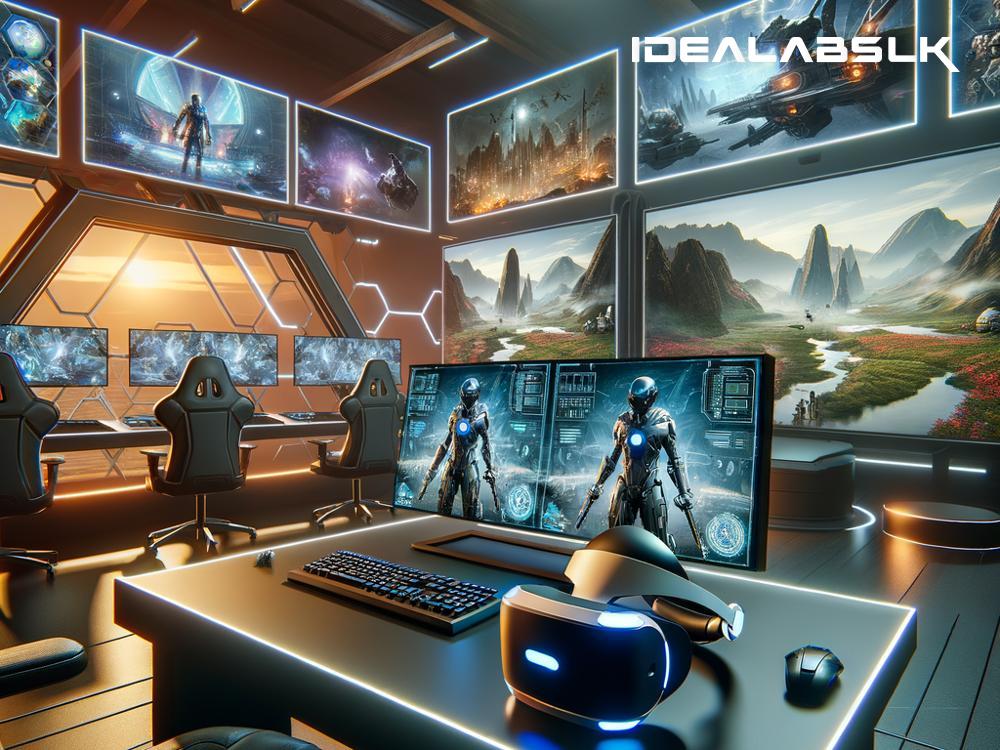How Artificial Intelligence Will Shape the Future of Multiplayer Online Games in 2025
The world of multiplayer online games is on the cusp of an exhilarating transformation, thanks to the rapid advancements in artificial intelligence (AI). By 2025, we're likely to witness revolutionary changes in how online games are played, created, and experienced, with AI leading the charge. Let's dive into how AI is set to redefine the future landscape of multiplayer online gaming.
Enhancing Game Realism
One of the most captivating developments in AI's role within online gaming is the enhancement of game realism. Through sophisticated AI algorithms, games are becoming more lifelike and immersive. Characters in games can now learn, adapt, and respond to players' actions in unpredictable ways, much like real people would. This means that by 2025, players might find themselves strategizing against opponents who learn from their every move, making each gameplay session unique and challenging.
Dynamic Game Worlds
Imagine entering a game where the environment changes based on your actions. This is the potential of AI in creating dynamic game worlds. By 2025, AI could enable environments that grow, evolve, and react to player behavior, leading to games that feel more alive than ever. Trees could grow or die, cities could expand, and ecosystems could change based on the cumulative actions of all players, creating a truly dynamic and engaging game world.
Smarter Matchmaking Systems
Finding the right people to play with is a significant part of multiplayer gaming. AI is set to revolutionize matchmaking systems by making them smarter and more personalized. Instead of just matching players based on skill level, AI could consider play styles, personality traits, and even gaming habits to create matches that are not only fair but also enjoyable for everyone involved. By 2025, expect your gaming sessions to be with players who truly complement your gaming style.
Enhancing Accessibility
AI is not just about enhancing gameplay; it's also about making games more accessible to a wider audience. With the help of AI, games can be designed to adapt to the needs of players with disabilities, offering custom settings and interfaces tailored to each player's requirements. By 2025, we could see games that are fully inclusive, allowing everyone to participate regardless of their physical abilities.
Personalized Gaming Experiences
The idea of a game that learns and adapts itself to the preferences of each player might have once seemed like science fiction, but by 2025, it could be the new norm. AI can analyze how you play and modify game difficulty, storylines, and even content based on your unique preferences and playstyle. This means more engaging and enjoyable gaming experiences that feel tailor-made for every player.
AI-Driven Content Creation
Creating vast game worlds takes a tremendous amount of time and resources. However, with AI, the future of game development looks significantly more efficient. AI can assist in generating complex environments, designing characters, and even crafting narratives, reducing the workload on human developers and potentially leading to a boom in creative and diverse content in multiplayer online games.
The Return of Human Emotion
Perhaps the most intriguing aspect of AI's integration into online games by 2025 is the potential for human-like emotional interactions. AI could enable non-player characters (NPCs) to display complex emotions and react to players' actions in emotionally realistic ways. This could lead to deeper storytelling and a greater sense of connection and immersion for players.
Challenges and Considerations
While the potential of AI in reshaping multiplayer online games is immense, it's not without its challenges. Issues such as maintaining player privacy, ensuring fair play, and avoiding the creation of overly addictive game mechanics are all important considerations. Moreover, as AI becomes more integrated into gaming, developers will need to balance AI-driven content with the human touch that makes games truly engaging and memorable.
Conclusion
As we look towards 2025, it's clear that AI will play a pivotal role in the evolution of multiplayer online games. From enhancing realism and accessibility to creating dynamic and personalized gaming experiences, AI is set to redefine what's possible in the gaming world. However, navigating this future will require careful consideration of the ethical and social implications of AI's integration into gaming. Nonetheless, the potential for AI to enrich and expand the online gaming experience is both exciting and promising, offering a glimpse into a future where games are more immersive, inclusive, and engaging than ever before.

